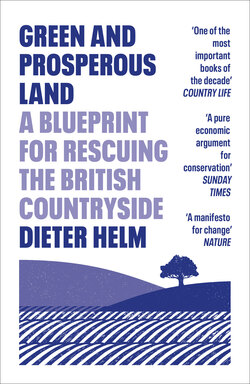Читать книгу Green and Prosperous Land - Dieter Helm - Страница 23
An even quieter spring?
ОглавлениеBusiness-as-usual is not a stable equilibrium, a world where we just live with the damage done in the twentieth century and allow it to worsen in this century. The damage is dynamic and, if allowed to run on, it will not bode well for the natural environment. More people, more houses, more physical infrastructure and more consumption is a world in which the chances that nature will hold its own are slim without action now. There will be some successes, but this is a world of instant gratification in almost all human activities.
The housing lobbyists argue that there is lots of land, and that building on more of it leaves lots left. Similarly they argue that the Green Belt is large, and a few more houses make little difference. Tracks up hillsides for wind farms, trucks to fish farms and cutting down a few ancient woodlands for HS2 are collateral damage for a claimed greater economic good.
This marginal argument, a marginal difference for each project and each marginal development, when set against a much larger whole plays out in business-as-usual. At each point along the way, one more housing estate is too small to make much difference to the whole. But it is a deadly argument. The trouble with this marginal argument is easy to see, but almost entirely ignored. Each time the marginal card is played there is a bit less left of the ecosystem and habitat of which it is a part. And so it goes on, until there is nothing left. In the words of the song by Joni Mitchell, ‘you don’t know what you’ve got ’til it’s gone’.[20] You will hear developers say that the Green Belt is not really very green anymore anyway because it has been intensively farmed. But why has it been intensively farmed? Because each new marginal addition to the chemical arsenal has been added on a case-by-case basis.
The tyranny of the marginal is the route to an increasingly silent spring. It is what business-as-usual means. Lots and lots of marginal losses end up with a catastrophe for insect life and for farmland birds. To seriously head off the damage that business-as-usual will bring – through more people, more houses and more hard infrastructures – the starting point needs to be the public goods, and not the marginal changes. It is these public goods that are being eroded in a death by a thousand cuts. Make no mistake, business-as-usual is likely to tip many ecosystems over the edge. By 2050 there could be very little left, and in a world with perhaps 500 or more parts per million of carbon in the atmosphere. The intensification of farming, industry, towns and cities could result in a silence of nature – of the birds, of the remaining insects and most of our mammals, reptiles, fish and invertebrates. It doesn’t have to be like this, but it will unless we act, and act now.
